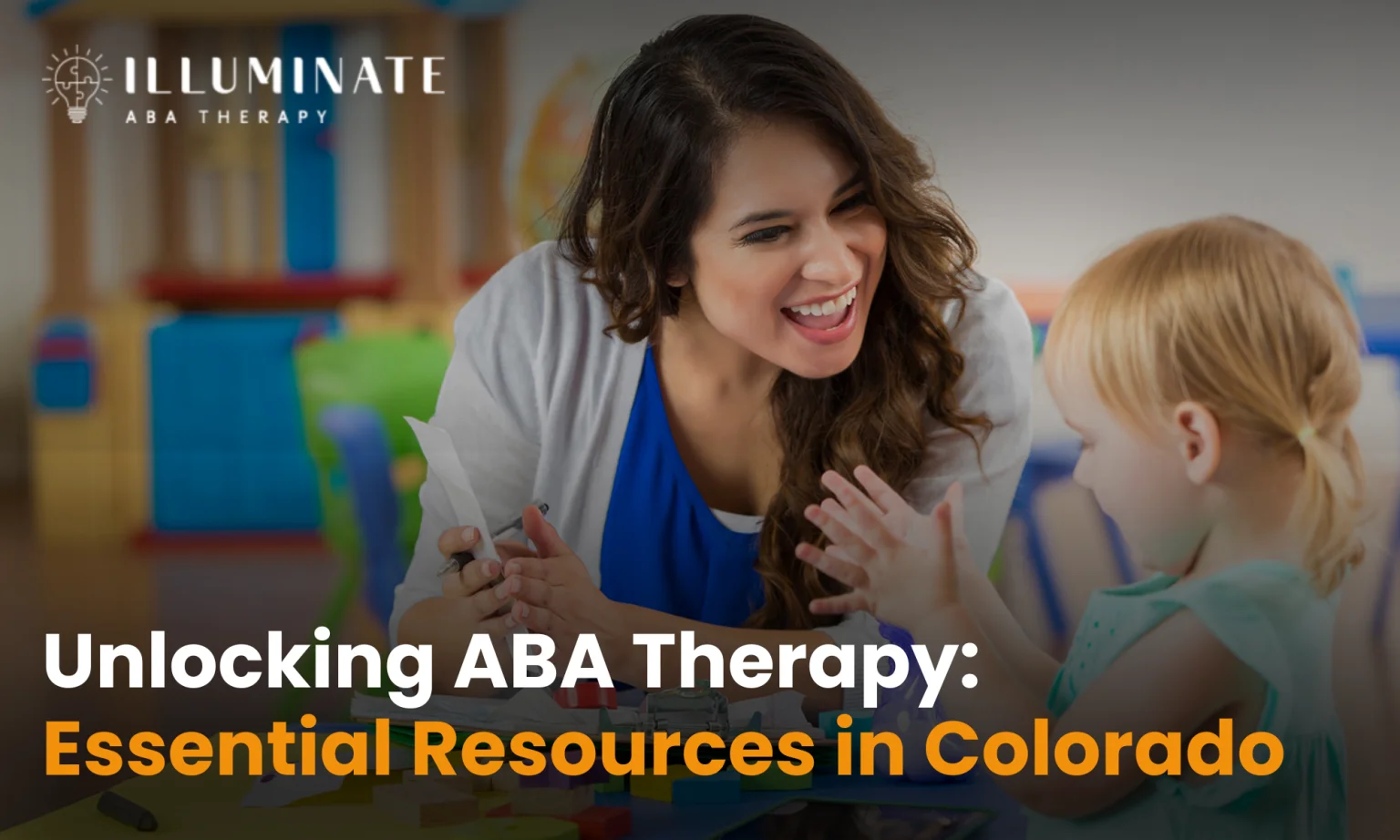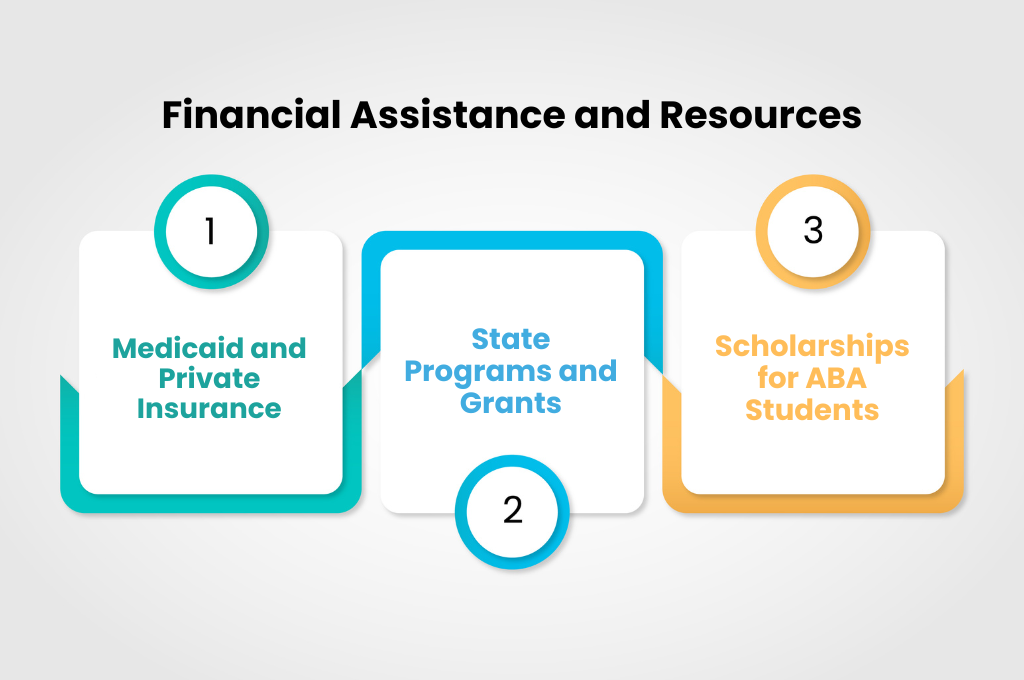Unlocking ABA Therapy: Essential Resources in Colorado
ABA TherapyJuly 17, 2025

ABA Therapy Scene in Colorado
Peeking into the autism therapy scene in Colorado, it's pretty clear that early help is a big deal. Here, kids are finding out they have autism later than in other places, usually past age 5. This means we gotta do better at catching and helping these kids sooner.
Getting Help Without the Wait
Early interventions are like superheroes for kids with autism and their families. These services aren't one-size-fits-all; they're all about putting the right tools in the hands of each child. Catching things early means using therapies like ABA (Applied Behavior Analysis) to seriously boost skills like talking, socializing, and behavior.
Bridging the gap between diagnosis and intervention is something organizations like Hopebridge are tackling head-on. They're on a roll with a big expansion plan in Colorado, aiming to plant six autism therapy and diagnostic service locations around the state by early 2021. It's like opening doors to top-notch ABA therapy for kids who need it, meeting the urgent call for early steps forward.
Hopebridge's Big Moves
Hopebridge is all-in on bringing much-needed autism services to Colorado. By covering more ground across the state, they’re not just letting more folks in on effective ABA therapies; they’re also fast-tracking autism diagnosis. This go-getter attitude is all about making sure families can grab the support and resources needed for their kids to shine.
Behavioral Innovations' Role
With the rising call for ABA therapy, providers are battling some hefty hurdles. Operational costs in Colorado have shot up around 30% over five years while payback rates from Medicaid only inched up 7% (Behavior Span). These numbers are squeezing providers hard, leading to service shrinkage, exits, or even shutdowns.
Sorting out these money issues is key to keeping ABA services afloat in Colorado. By fixing the gap between what it costs to run these services and what’s coming in, providers can keep handing over the good stuff to kids with autism. These money woes don’t just hit the providers—they ripple out to affect the families counting on these therapies to help their kids.
In the ever-turning wheel of ABA therapy in Colorado, initiatives by outfits like Hopebridge and the obstacles facing providers point to the weighty need for ongoing help and resources. By pulling together to push through these barriers, we can make sure every person with autism in Colorado gets the care and backing they deserve.
ABA Therapy Providers in Colorado
If you're a parent or educator in Colorado hunting info on ABA therapy resources, there's some stuff you need to figure out. We're talking services provided, what ages they serve, how long and what kind of time commitment we're looking at, insurance deets, and what kind of licenses these therapy providers need.
Services and Age Range
Most ABA places in Denver, Colorado work with kiddos about 18 months to 6 years old, sometimes even those between 1-5 years old (Beaming Health). They focus on stuff like handling behaviors, getting those social skills rolling, improving communication, and giving school support, all personalized to what each child needs.
Duration and Commitment
How long does ABA therapy go on, you ask? Well, it can go for just a couple of months up to a few years, depending on the kiddo's pace and what they need. Some families find themselves doing several sessions a week, with intensive programs clocking up to 40 hours each week (Beaming Health). The big goal here is to push towards reaching the child's highest potential and hitting specific behavioral goals.
Insurance Coverage and Licensing Requirements
Got insurance? That's good news, especially if your child has an autism diagnosis. Most insurance plans in Colorado cover ABA since it’s packed with benefits proven by research (Beaming Health). But it's a smart move to double-check with your own insurance to see how much they actually cover and what might come out of your own pocket.
What about legality? Colorado wants its ABA providers to have the right licenses before they start working. To snag this license, behavior analysts need the right education and experience, plus a passing score on a national exam. Membership with the Behavior Analyst Certification Board (BACB) is crucial when picking your ABA provider to ensure they stick to ethical rules and the best practices in the biz.
By gathering the lowdown on what services are offered, which age group they serve, how long and what kind of commitment ABA therapy needs, what insurance covers, and what licenses are required, you'll be in a solid position to pick the right ABA provider in Colorado. This knowledge helps you offer the best support for children diving into ABA therapy, giving them a chance to shoot for the stars.
Financial Assistance and Resources

Figuring out how to pay for ABA therapy in Colorado can feel like wading through a sea of paperwork and fine print. But with some helpful tips on hand, the whole process can get a lot less stressful. I’m here to break down the facts on financial help such as Medicaid, private insurance, state programs, grants, and scholarships for those diving into an ABA career.
Medicaid and Private Insurance
Good news for Colorado folks—ABA therapy is a perk that's covered under state-sponsored Medicaid. Basically, if your finances meet the requirements, you can snag free or cheap health insurance that covers ABA services, no matter what diagnosis you're dealing with. The eligibility number game for Medicaid checks out your household size—think $16,612 if you're flying solo up to $57,762 for the big families out there.
Have private insurance? Great! Colorado says these plans ought to include ABA services for those under 19. But if you’ve got both Medicaid and private insurance, you've got to let your private insurance have first dibs. They'll need to give a thumbs-down on coverage before Medicaid steps in. Don't forget to peek at your specific policy for the lowdown on what they'll cover. It might surprise you!
State Programs and Grants
Colorado throws in some extra help through state programs and grants for families on the hunt for ABA therapy. Check out the Special Angels Foundation, which dishes out grants to help pay for therapies, equipment, and more, especially for kiddos with special needs. Get a letter from your pediatric pro confirming the need for these therapies, and your child must be a little one under 18 living stateside.
Another gem to consider is the CARE Family Grant Program. This one backs families dealing with costs tied to medication, autism checks, therapy sessions (like ABA, speech, or OT), and autism-focused camps. Funds go straight to the folks providing the service, making things like tuition and meds lighter on your wallet.
Scholarships for ABA Students
For those who’ve got their sights set on a career in ABA, scholarships can ease the load and push you toward your goals. The Butcher Innovation Awards in Colorado offer some hefty scholarships (up to 10 grand!) to support dedicated students in the Applied Behavior Analysis field.
Finding your path through these financial options can make ABA therapy feel like less of a mountain to climb in Colorado. Knowing what you’re eligible for and how to apply can make all the difference in getting the quality ABA services you need without breaking the bank.
Challenges in Getting ABA Therapy
Trying to get ABA therapy in Colorado? Not exactly a walk in the park, am I right? Families who need it and the folks who provide it both face a bunch of hurdles. Recognizing and dealing with these obstacles is key to getting those much-needed therapies started on time for those who need them most.
Wait Times for Services
So, let's talk wait times because, honestly, they're a bit of a nightmare right now. Way back in November 2022, the typical wait was around six months. Fast forward to June 2023, and boom, you've got you're waiting around 6.8 months for ABA therapy in Colorado. And that’s just an average. Picture waiting 30 months to get help (Behavior Span). That could be the difference between early help and watching a kiddo struggle longer than necessary. This pause can really mess with how effective those early treatments are and might change the long-term outlook for children with Autism in Colorado.
Financial Strain on Providers
Now, let’s not forget the providers themselves. They’re a bit strapped for cash thanks to costs sky-rocketing. Operational expenses for ABA providers shot up by nearly 30% over five years, but Medicaid types have given them a measly 7% increase (Behavior Span). Those numbers don't add up. Providers are having to make some tough decisions—cutting back services, moving to different areas, or even shutting down altogether. These money woes make the ABA service shortage worse and mean fewer providers are sticking around to help the families that need them most.
Impact on Families and Children
Okay, here's the thing: these wait times and money problems knock back kids and their families in a big way here in Colorado. A family whose kid gets diagnosed with Autism might have to sit tight for another six months before therapy even begins. And that's after waiting up to a year just to get the diagnosis (Behavior Span). Delays are not just numbers on paper—they’re lost opportunities for a kid's development.
Imagine a child in Colorado’s getting their Autism diagnosis at age 4, only because they've been sitting in a queue. It means they miss out on early therapy which could have been pivotal. Stalling on ABA therapy access isn't just frustrating; it’s letting the chance for better developmental progress slip through the cracks. We need the process to flow better, kinder on families and more feasible for providers. Time’s of the essence to tackle these challenges head-on and make sure families in Colorado aren't left hanging.
